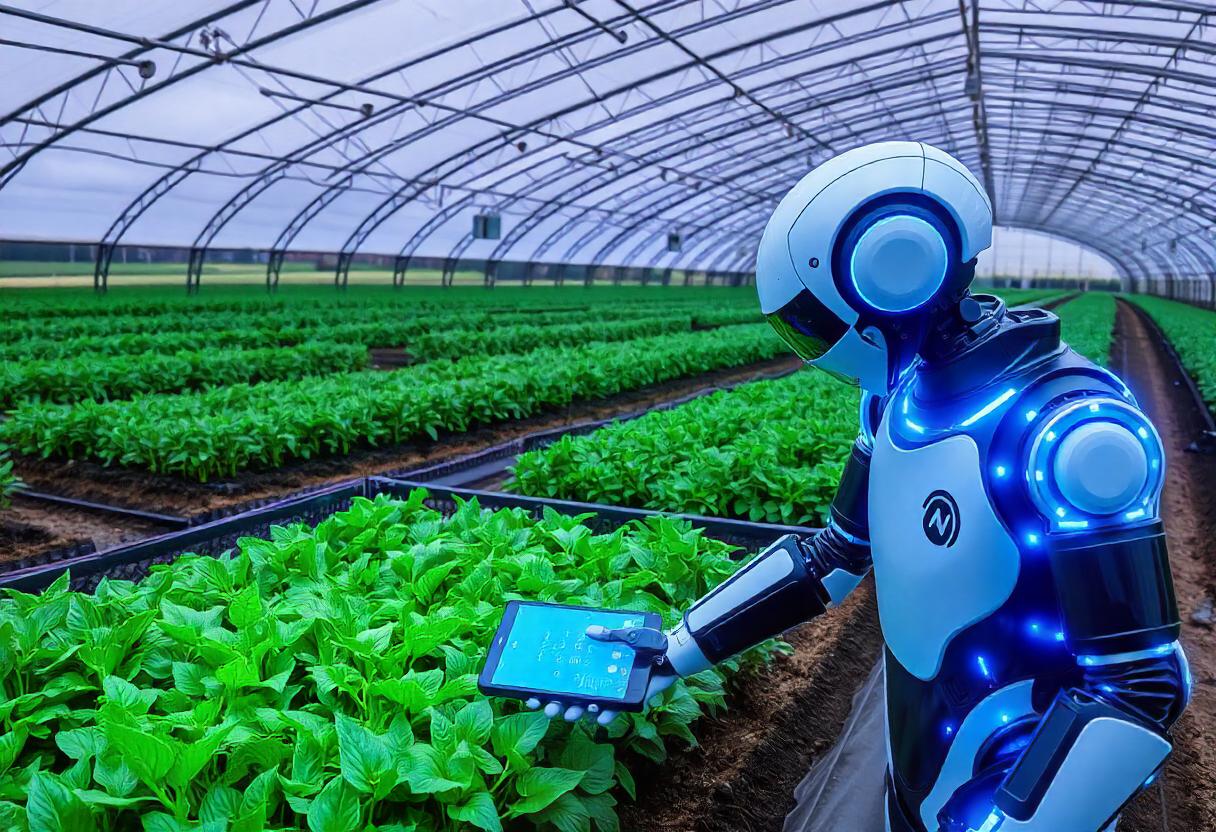
Artificial Intelligence (AI) is revolutionizing the agriculture industry by providing advanced solutions for various farming challenges. From enhancing crop yields to optimizing resource management, AI technologies are transforming traditional agricultural practices. Here’s an overview of how AI is being integrated into agriculture.
Crop Monitoring and Management
AI-powered systems can analyze data from satellite images, drones, and sensors to monitor crop health. Machine learning algorithms process this data to identify issues such as disease, pests, and nutrient deficiencies. Early detection allows farmers to take timely action, improving crop management and reducing losses.
Precision Agriculture
AI enhances precision agriculture by enabling more accurate field management. AI algorithms analyze data from various sources, including GPS and remote sensors, to optimize planting patterns, irrigation schedules, and fertilization. This results in more efficient use of resources and increased crop yields.
Predictive Analytics
Predictive analytics driven by AI helps farmers anticipate future conditions and challenges. By analyzing historical data, weather patterns, and market trends, AI models can predict crop yields, pest outbreaks, and market demands. This foresight enables farmers to make informed decisions and plan their operations more effectively.
Automated Machinery
AI is integrated into automated machinery such as autonomous tractors, harvesters, and drones. These machines use AI algorithms to perform tasks such as planting, watering, and harvesting with minimal human intervention. This automation increases efficiency, reduces labor costs, and ensures precision in farming operations.
Soil Health Monitoring
AI tools can analyze soil data to assess its health and suitability for different crops. Machine learning models evaluate soil composition, moisture levels, and nutrient content to provide recommendations for improving soil health. This helps farmers optimize soil management practices and enhance crop productivity.
Pest and Disease Management
AI systems can identify pests and diseases through image recognition and data analysis. By processing images captured by drones or cameras, AI can detect early signs of infestations or infections. This allows for targeted treatment strategies, reducing the need for widespread pesticide use and minimizing crop damage.
Irrigation Management
AI-driven irrigation systems use data from soil moisture sensors and weather forecasts to optimize water usage. Machine learning models predict water needs based on current conditions and crop requirements, ensuring that crops receive the right amount of water while minimizing waste.
Supply Chain Optimization
AI improves efficiency in the agricultural supply chain by analyzing data related to production, transportation, and market demand. AI algorithms can optimize logistics, predict supply and demand imbalances, and enhance inventory management. This leads to reduced waste, better resource allocation, and improved profitability.
Farm Management Software
AI-enhanced farm management software provides comprehensive tools for monitoring and managing agricultural operations. These platforms integrate AI algorithms to offer insights into crop performance, financial management, and operational efficiency. Farmers can use these tools to streamline their operations and make data-driven decisions.
Climate Adaptation
AI helps farmers adapt to climate change by analyzing environmental data and predicting how changing conditions will impact crop production. Machine learning models can suggest adjustments to farming practices, such as altering planting dates or selecting more resilient crop varieties, to mitigate the effects of climate change.
Data-Driven Decision Making
AI empowers farmers to make data-driven decisions by processing and analyzing vast amounts of agricultural data. This includes data from sensors, weather reports, and market trends. AI-driven insights support strategic planning, resource management, and operational improvements.
Conclusion
Artificial Intelligence is transforming agriculture by providing advanced tools and solutions that enhance productivity, efficiency, and sustainability. From crop monitoring and precision agriculture to automated machinery and supply chain optimization, AI is shaping the future of farming. As technology continues to advance, AI’s role in agriculture will likely expand, offering new opportunities and solutions for the industry.